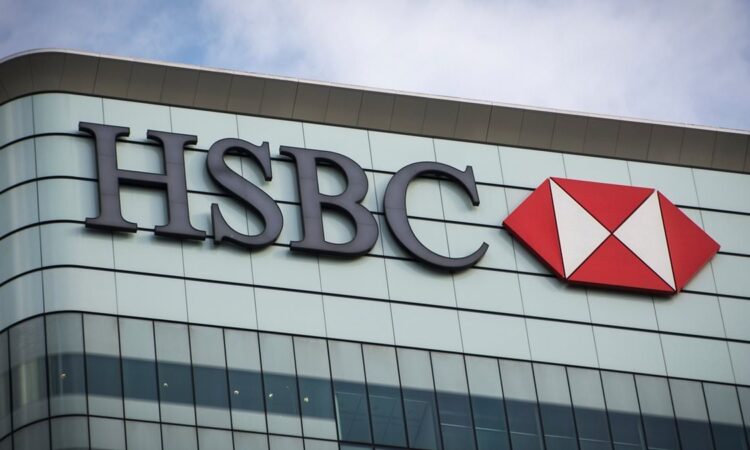
- HSBC is taking on challengers Revolut and Wise in a bid to attract customers
- These challengers offer cheap foreign exchange which has reeled in millions
- Zing will allow customers to hold 10 currencies through its app
HSBC is set to launch an international payments and foreign currency app and debit card called Zing in the UK today.
It is a move to claw back some of the retail customers who have flocked to challengers Revolut and Wise.
The market has been dominated by these firms, which have reeled in millions of customers by offering cheap foreign currency.
What does Zing do?
Zing will allow customers to hold 10 currencies through its app, send money internationally across more than 30 currencies and spend across the globe.
The app will be available to download for free on the Google and Apple app stores within days of it launching.
Zing is HSBC-owned but sits separately to HSBC’s other banking offerings, so you don’t have to have to be an HSBC customer to become a Zing member.
Related Articles
HOW THIS IS MONEY CAN HELP
What are the fees for currency conversion?
There is currently a waiting list to sign up to Zing.
The first 10,000 people to join will become ‘founding members,’ which means that they will receive exclusive rewards in their first year, including a choice of fee-free currency conversions (on transactions up to £1,000) or 20 fee-free international ATM withdrawals.
For those that are not founding members, Zing says the first withdrawal internationally per calendar month is free, and after this there is a £2 (or equivalent) fee per withdrawal in the withdrawal currency.
For withdrawals in the UK there is a £2 fee per withdrawal. For all members the daily withdrawal limit is £500.
Click here to resize this module
Is Zing FSCS protected?
Zing has been developed as a fintech within the HSBC Group.
It is not a bank, though it is authorised by the Financial Conduct Authority.
Crucially, funds are not protected by the Financial Services Compensation Scheme which protects customers’ money up to £85,000 if a firm goes bust.
How does it stack up against Revolut and Wise?
James Blower, founder of website Savings Guru said: ‘Without being able to compare charges and fees at this stage, it is difficult to know whether Zing is better than Wise or Revolut.’
There are three things that retail customers should check when weighing up signing up for a Zing account.
Firstly, the exchange rates. Wise and Revolut have been much better here than high street banks, so it will be interesting to see if Zing is more in line with them, or just a fintech rebranding of HSBC’s high street rates.
Then there are the fee free cash withdrawals. Both Revolut and Wise allow £200 a month of local currency to be withdrawn.
Zing will allow 20 withdrawals a month for the first 10,000 users but after this there is a £2 (or equivalent) fee per withdrawal in the withdrawal currency, including in the UK.
For customers who sign up after the initial 10,000 members, the first withdrawal internationally per calendar month is free but after this there is a £2 (or equivalent) fee per withdrawal in the withdrawal currency. For withdrawals in the UK there is a £2 fee per withdrawal.
Lastly, when it comes to sending money internationally both Revolut and Wise have been successful in these markets for being very low cost. It is not clear yet whether Will Zing match their rates or if it will charge more in line with HSBC.
A spokesperson from Zing said: ‘Zing has transparent variable fees of at least 0.6 per cent depending on the transaction value which are shown prior to the transaction.’
Currently Wise charges £1.21 to send £250 GBP to Euro whereas HSBC charges £9.26.
James Blower says: ‘Zing looks like HSBC’s attempt to fight back against the likes of Wise and Revolut in the fast-growing international payments market.
‘It is estimated that there will have been over £800billion of transactions in 2023, so it’s certainly something that’s becoming increasingly valuable to financial services providers.’
James Allan, founder and CEO of Zing says: ‘Many people are increasingly living an international lifestyle with more than half of UK adults have either spent time living abroad or have aspirations to do so.
‘Our research found that these people often have frustrations when sending, spending and converting money.
‘That’s why now is the time for a new kind of international payments solution, one that combines cutting-edge innovation with the support of an experienced global bank.’
Some links in this article may be affiliate links. If you click on them we may earn a small commission. That helps us fund This Is Money, and keep it free to use. We do not write articles to promote products. We do not allow any commercial relationship to affect our editorial independence.




